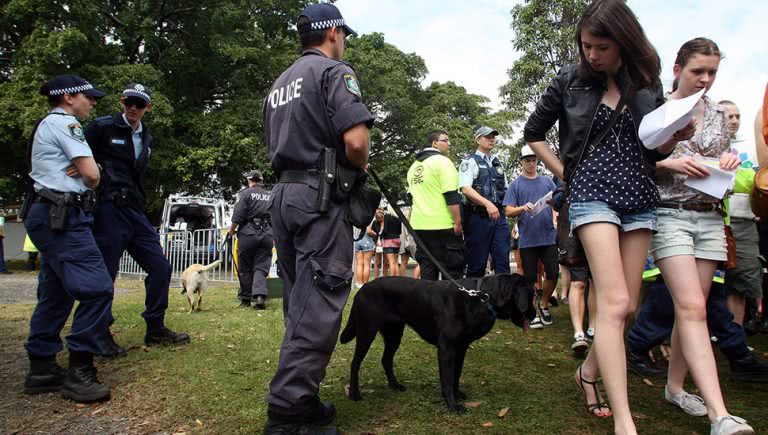A new report has revealed that New South Wales police are told to film people when conducting a strip search.
Per The Guardian, documents obtained by The Redfern Legal Centre has revealed that the police officer conducting the search should not film the proceedings, however, support officers on the scene should “record the search using a [body-worn video] camera”.
Whilst the documents do state that officers should “take particular care to ensure the person’s privacy is adequately protected” by ensuring footage filmed isn’t shown to anyone “without a lawful reason to do so”. It also states that “A person’s privacy is not a sufficient reason to cease filming a strip search conducted in the lawful execution of an officer’s duty.”
Footage captured during the procedure remains in police custody for six months — unless tagged by an officer as evidence for an investigation.
Redfern Legal Centre’s police accountability lawyer, Sam Lee, told The Guardian that there are “enormous privacy considerations” at stake that should have been “publicly explored” before police were given that power.
Police strip searches have been a point of contention in recent months after it was revealed by Sydney Morning Herald, that there was no clear legal definition of a strip-search in state legislation.
Reports obtained by SMH have detailed that police have been applying their strip search powers inconsistently at music festivals.
Love Music?
Get your daily dose of metal, rock, indie, pop, and everything else in between.
“Currently the legislation is open to interpretation and there is evidence of operational orders instructing officers that the removal of one piece of clothing constitutes a strip-search,” the document states. “Likewise, there is [sic] operation orders suggesting that an indication from a drug dog is enough justification to conduct a strip-search.”
Earlier this year, 19-year-old sports science student Lucy Moore claimed that she was illegally strip-searched by police in an incident that she described as police “abusing their powers.”


































